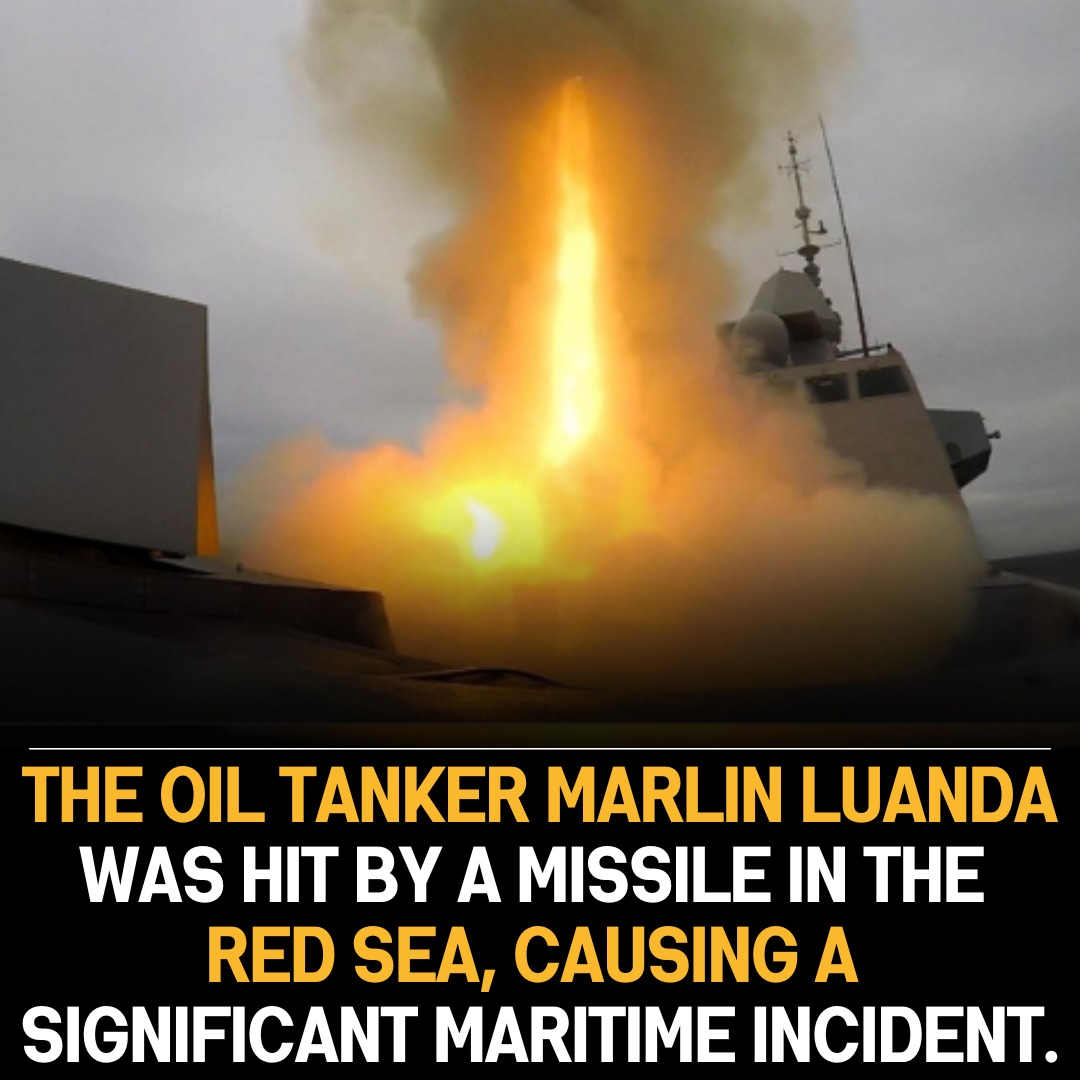In a significant maritime incident, the oil tanker Marlin Luanda found itself at the center of a concerning event as it was struck by a missile in the Red Sea. This incident has amplified worries over regional security and safety, prompting a closer examination of the potential implications and raising questions about the stability of the maritime environment in the area.
The incident unfolded as the Marlin Luanda, a crucial vessel in the transportation of oil, was navigating the waters of the Red Sea. The sudden and unexpected missile strike has triggered heightened concerns among maritime authorities and stakeholders, leading to an urgent investigation into the circumstances surrounding the attack.
One of the primary concerns arising from this incident is the impact on regional security. The Red Sea is a vital waterway, serving as a key route for the transportation of goods, including oil, between Europe and Asia. Any disruption in this maritime corridor has far-reaching consequences, affecting not only the countries directly involved but also the global supply chain.
The deliberate targeting of an oil tanker also raises questions about the motivation behind the attack. The geopolitical tensions in the region have been a source of concern, and this incident adds another layer of complexity to the existing challenges. Understanding the motives behind such attacks is crucial for formulating an effective response and addressing the root causes.
Safety in maritime operations is paramount, and the incident has prompted a reevaluation of security measures in the Red Sea. Authorities are likely to enhance surveillance, coordinate efforts to ensure safe passage for vessels, and implement measures to prevent similar incidents in the future. The protection of vital maritime routes is not only a regional responsibility but also a global concern that requires collaborative efforts.
The Marlin Luanda incident also underscores the vulnerability of commercial vessels to security threats. As the maritime industry relies heavily on open sea routes, safeguarding vessels from potential attacks becomes imperative. The incident serves as a reminder of the need for continuous vigilance, security protocols, and international cooperation to ensure the safety of maritime transportation.
In conclusion, the missile strike on the oil tanker Marlin Luanda in the Red Sea has sent shockwaves through the maritime community, amplifying concerns over regional security and safety. The incident highlights the importance of addressing geopolitical tensions, reassessing security measures, and fostering international collaboration to safeguard vital maritime routes. As authorities investigate the incident, the focus remains on ensuring the stability of the Red Sea and the security of global maritime operations.









